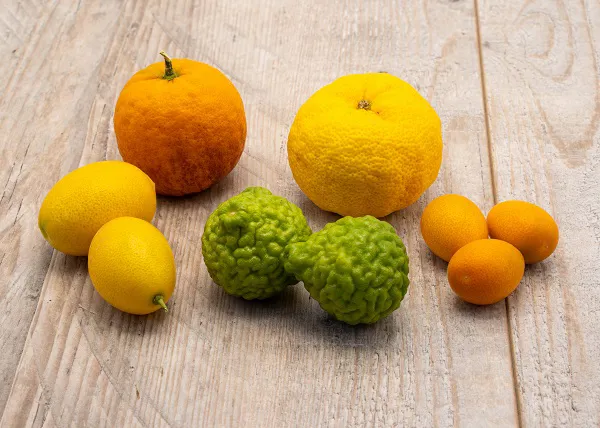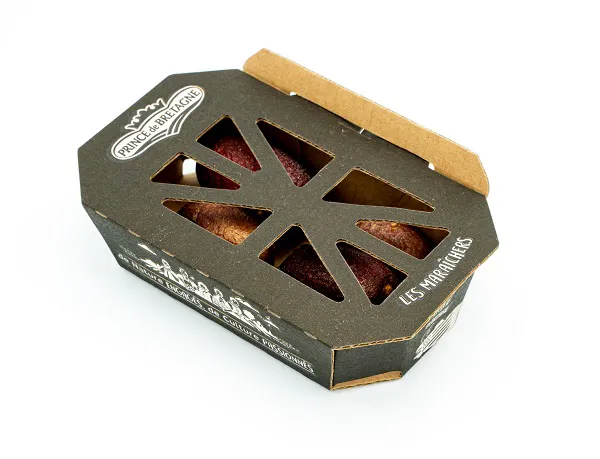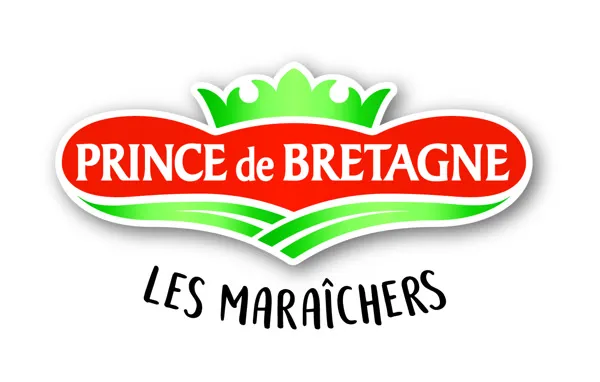Innovation, climate change, optimizing work tools and diversification are just some of the reasons why Prince de Bretagne's producers are turning to citrus crops. Launched 4 years ago, the range now includes 8 products and could attract other growers in the face of increasing demand for French production.

500 kilos of caviar lemons sold this year
“The amount may seem surprising, but these are products grown under cover and perfectly adapted to the climate of Brittany, so production has been increasing every year. Some of our organic producers had old tunnels and were wondering what to grow in them. We set up trials on several citrus fruits, including yuzu, kaffir lime, meyer lemon and caviar lemon. We developed caviar lemons the most, since there was already an existing market in France. 500 kilos of caviar lemons were sold this year. Today, this product is very popular among chefs and stores specialized in fresh produce.
“We have the necessary hindsight to say that the climate of Brittany is well suited to growing citrus fruit. It is an interesting diversification lever for producers like me, who also have the tools to convert. I plan to double my surface area devoted to citrus fruit this year. They are quite popular among French consumers, and the French production is still very small,” explains Damien Jacob, producer in Paimpol (Côtes d’Armor department).
Since 2019, a few Prince de Bretagne producers have been growing caviar lemons, meyer blood lemons, kaffir limes, kumquats, limequats and yuzus. This niche production represents an “opportunity to optimize the use of greenhouses and tunnels. Brittany's climate is not only well-suited to citrus growing, but also proves to be an asset, with temperatures that enable harvesting in the last quarter of the year (just after production in Corsica), cool nights to give the fruit a beautiful color without the need for cold storage. Additionally, without post-harvest treatment, the fruits last between 2 and 3 weeks.”
 These citrus fruits are grown by 7 producers on 5,000 m² of conventional and organic land in Ille-et-Vilaine, Côtes d'Armor and Finistère. Peak season: October-November-December
These citrus fruits are grown by 7 producers on 5,000 m² of conventional and organic land in Ille-et-Vilaine, Côtes d'Armor and Finistère. Peak season: October-November-December
Production doubles every year
“After a very modest start, production is now doubling every year. The trees are more and more generous. The initial range, made up of exceptional products for (pastry) chefs, has now expanded to meet the expectations of French consumers in general, who are keen on new citrus fruit such as kumquats, limequats and kaffir limes. Pink caviar lemons and yuzus remain the flagship products of the Prince de Bretagne range, joined by the Buddha’s hand lemons and caviar oranges for the end of the year, making a total of 8 citrus fruit varieties in the Prince de Bretagne range.”

Clementines and limes coming soon?
Prince de Bretagne has set up an innovation unit that works with the company's experimental stations: CATE in Saint-Pol-de-Léon and Terre d'essais in Pleumeur-Gautier. They test future crops upstream. The stations also play a role in providing technical support to producers as they launch new crops. The production of limes and clementines is still at the brainstorming stage.
 For more information:
For more information:
Pierre Gélébart
Prince de Bretagne
Phone : +33 2 98 69 38 71
Mobile: +33 6 62 92 64 74
[email protected]
www.princedebretagne.com/fr










